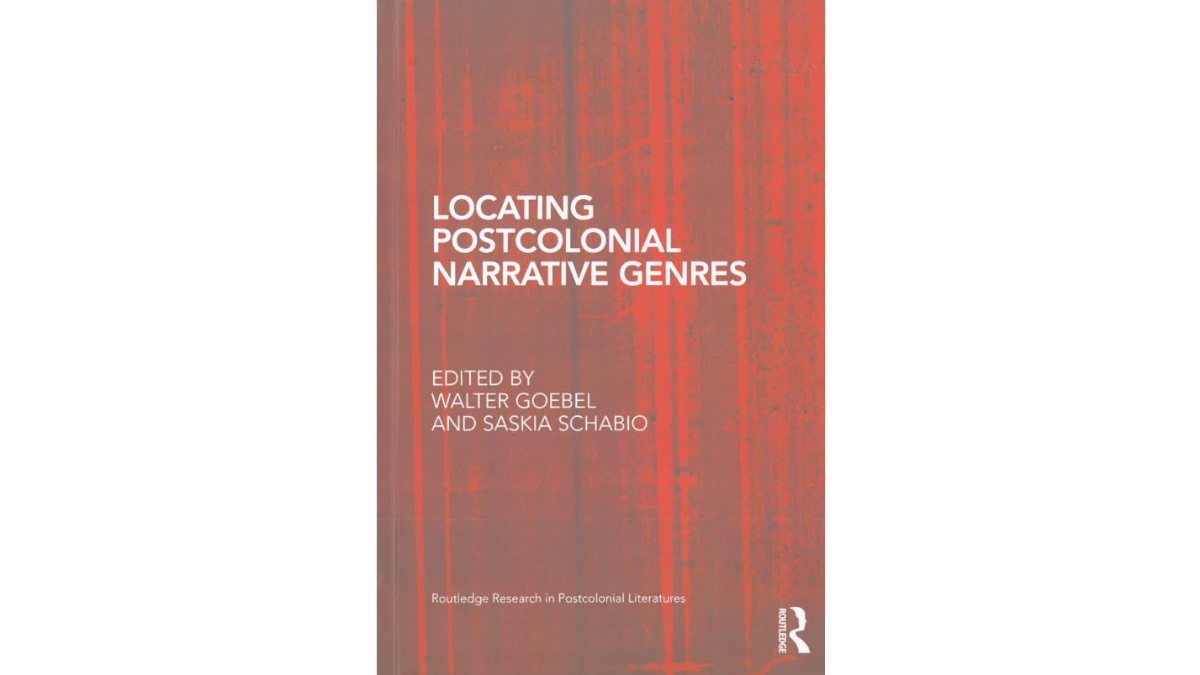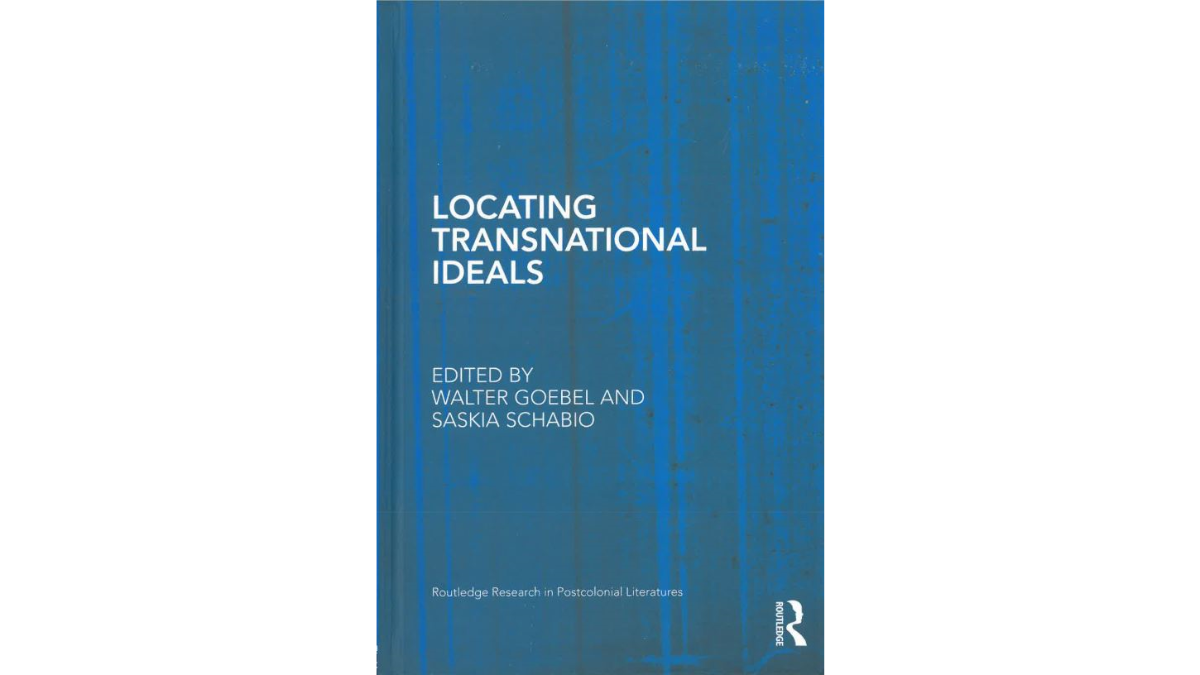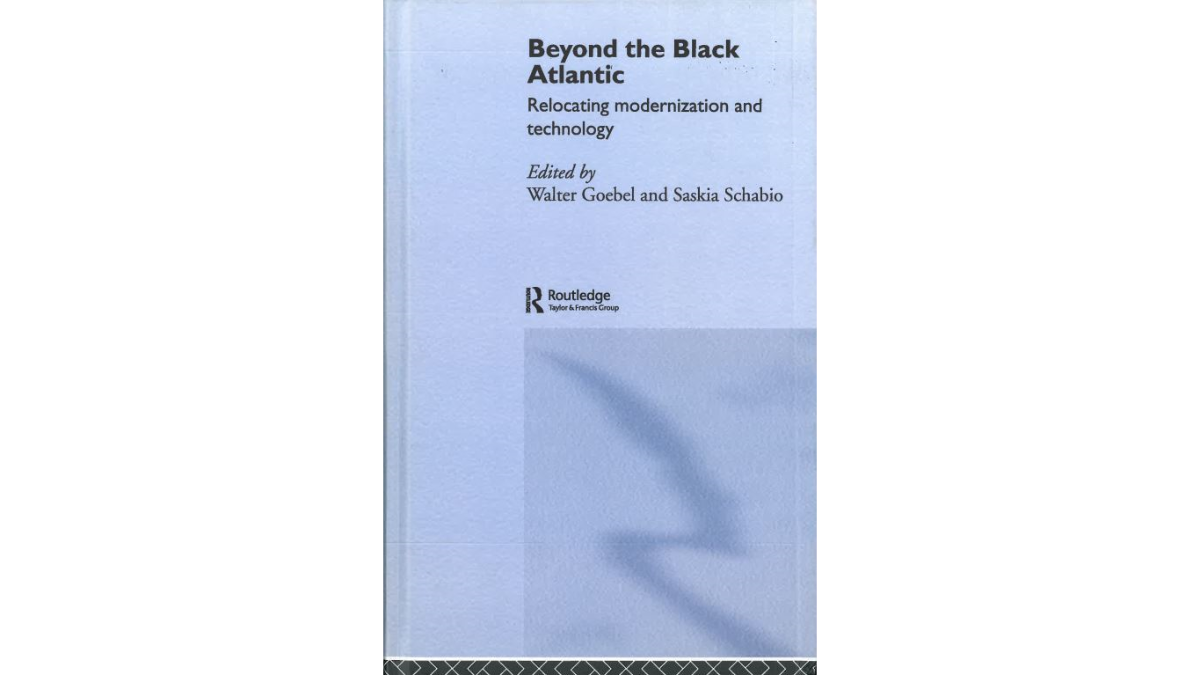Kontakt
Keplerstr. 17
70174 Stuttgart
Raum: 4.026
Sprechstunde
Sprechstunden im Sommersemester 2025
Dienstags, 13:30 Uhr im Büro,
Donnerstags, 08:00 - 09:00 Uhr per Webex: https://unistuttgart.webex.com/meet/saskia.schabio
Bitte melden Sie sich vorab per E-Mail an: saskia.schabio@ilw.uni-stuttgart.de
Im Anschluss an das Erste Staatsexamen (1993) hat Saskia Schabio zunächst am Lehrstuhl für englische Philologie der Universität des Saarlandes unterrichtet und war dort in verschiedene Forschungsprojekte eingebunden (u.a. Edition des Timon of Athens in der Reihe New Cambridge Shakespeare). Nach der Promotion (über neuplatonische Bezüge in den Sonetten Mary Wroths und Shakespeares) und Zweitem Staatsexamen (2001) wurde sie zunächst Hochschulassistentin (C1) und später Wissenschaftliche Mitarbeiterin an der Universität Stuttgart (Abt. Amerikanistik).
Sie hat mehrere DFG-geförderte Konferenzen und Publikationen zu postkolonialen und transnationalen Fragestellungen konzipiert. Aktuelle Arbeiten entwickeln diese Schwerpunkte aus Sicht der cognitive cultural & literary studies, so das laufende Buchprojekt zu "Transnational Minds" (AT). Weitere Forschungsinteressen und Veröffentlichungen beziehen sich auf die Gender/Diversitäts-Forschung, die Empathieforschung und die Environmental Humanities.
Seit 2009 koordiniert sie das Curriculum der Fachdidaktik Englisch. Eigene fachdidaktische Interessen beziehen sich auf Fragen der Interkulturalität sowie der Kognitionsforschung im Horizont der Digitalisierung.
Sie hat das BMBF-Projekt "Heterogenität und Digitalisierung" konzipiert und in diesem Kontext eine internationale Tagung zum Thema Diversity in the Digital Foreign Language Classroom (DDFLC) durchgeführt sowie die Forschungskoordination übernommen. Im Rahmen des Qualitätspaktes Lehre (QuaLIKiSS) hat sie ein Konzept für nachhaltiges, kumulatives e-learning zu den Schwerpunkten interculturality und intermediality entwickelt. Daneben hat sie eine Reihe Virtueller Symposia mit dem Fokus " Digital Global Citizenship Education" veranstaltet (Themen: Blended Learning, OER, Making/Makerspace Education.
Aktuelle Projekte widmen sich dem Thema „Research Literacy for pre- and in-service teachers“ :
ReaLiTea-Projekt (Erasmus+ Cooperation Partnership KA-220): Research and teaching skills of pre-service and in-service English language educators.
"Literary texts – Effects on Critical Cultural Awareness" (jointly conducted
by
Augsburg Technical University of Applied Sciences, Stuttgart University and the
University of Connecticut)
" Research into Classroom: On the Move: Migration and Cross-Cultural Encounters": Veranstaltungsreihe mit dem Deutsch-Amerikanischen Zentrum zu dem neuen Abiturschwerpunkt/Baden-Württemberg.
[in selection]
Saskia Schabio: “Green Stories for Digital Sustainable Development Education” (mit Sannah König), FabLearn Europe / MakeEd 2022: 6th FabLearn Europe / MakeEd Conference 2022, 31. Mai 2022, https://doi.org/10.1145/3535227.3535241
Saskia Schabio: “‘A Citizen of the World – How far can we take that idea?’ Global Citizenship Literacy als Projekt Forschenden, Kumulativen Lernens im Englischstudium.” In: Hansgeorg Binz & Ursula Meiser (Hg). Qualitätspakt Lehre – Individualität und Kooperation im Stuttgarter Studium: Ausgewählte Ergebnisse aus der Zweiten Förderphase (BMBF). 2021. 122-137.
“No Game of Chess: Dominoes and the Modelling of Alternative Public Spheres in Menéndez and Glissant”. Games of Empires: Kulturhistorische Konnotationen von Brettspielen in transnationalen und imperialen Kontexten, herausgegeben von Karen Aydin, Martina Ghosh-Schellhorn, Heinrich Schlange-Schöningen, Mario Ziegler. Berlin: LITVerlag, 39-58.
“‘What Sense of Disquiet?’ Novelization, Creolization, World Literature”, Journal of Postcolonial Writing 48/5 (2012): 552-64.
“Shifting Genre, Relocating the Aesthetic”. Locating Postcolonial Narrative Genres. Hg. Walter Goebel and Saskia Schabio. London and New York: Routledge, 2013. 44-57.
“Ulysses and the Shape-Shifter: Caribbeanness and Modernity in Pauline Melville’s Writings”. Beyond the Black Atlantic: Relocating Modernization and Technology. Hg. Walter Goebel und Saskia Schabio. London und New York: Routledge, 2006. 79-94.
“Towards an Aesthetics of (Dis)Affection: V.S. Naipaul”. Postcolonial (Dis)Affections. Hg. Walter Goebel und Saskia Schabio. Trier: WVT, 2007. 24-36.
“The Tempest”. Shakespeare im Unterricht. Hg. Laurenz Volkmann et al. Publications of the German Shakespeare Association. Tübingen: Stauffenberg, 2005. 253-68.
Saskia Schabio, „Intelligence of the Emotions: Proust to Virtual Reality”, Cognitive Futures, Catania 2024. https://cognitive-futures.com/book-of-abstracts
"Political Emotions and the Contrapuntal Arts of Democracy", International Symposium: “The Art of Democracy: Political Emotions in Times of War and Peace”, 13.-14.01.2023
" (Ecological) Justice in the Literary Reading Lab?": International Conference Diversity in the Digital Foreign Language Classroom, 30.03.2023.
"Förderung von sozial-emotionalem Lernen (SEL) und Diversity-Awareness" (mit Sannah König), Forum für Medien und Hochschulentwicklung (JFMH) 2022: "Kompetenzen im digitalen Lehr- und Lernraum an Hochschulen", 13. Mai 2022
"Green Stories for Digital Sustainable Development Education" (mit Sannah König), FabLearn Europe / MakeEd 2022: 6th FabLearn Europe / MakeEd Conference 2022, 31. Mai 2022
"Teaching Empathy in a World of Strangers", American Comparative Literature Association – Annual Meeting 10. April 2021
"Locating Global Citizenship Education: Aesthetics & Politics of a Transnational Agenda", Virtual Symposium, University of Stuttgart, 1. Dez. 2020
"Cultivating Empathy & Critical Thinking through Literary Reading?", (Virtual Symposium, University of Stuttgart, 10. Nov. 2020)
"Diverse & Digital: Research Perspectives and Invitation to a Transdisciplinary Dialogue", PSE Retreat, Stuttgart, 29. September 2020.
"Global Citizenship ' Literacy'", World Citizen School, Weltethos-Institut der Universität Tübingen, 2. September 2020
"'To Set a Quiet Drama Going – Embodied Reading as Performance'", COGNITIVE FUTURES IN THE ARTS AND THE HUMANITIES PARADIGMS OF UNDERSTANDING – SHARING COGNITIVE WORLDS, Mainz, 2019.
"Writing from the Other America: Re-routing Cosmopolitanism / Re-routing Jean Rhys Criticism", Paris, Sorbonne, 2018.
"Transnational Minds", University of Kent, "Cognitive Futures", Canterbury, 2018.
"Thinking and Feeling Beyond the Nation?" – Emotion, Cognition, Cosmopolitanism. Transnational Conrad, Universität Limoges, 2017.
"Emotionen digital lesen lernen?" Digitalisierung und Englischunterricht, Universität Stuttgart, 2017.
"Comparative Ideologies: Édouard Glissant" – GAPS, Universität Münster, 2015.
"Consuming Grief, Consuming Public: Postcolonial Interventions", ACLA, Brown University, Providence. 2012.
"The Spatial Turn in the EFL Classroom", GNEL, Universität Bern, 2012.
"Beyond Bakhtin: Novelization as Creolization", Spectres of World Literature, Birkbeck College London, 2011.
[in selection]
Sektion “Postcolonial Aesthetics”, Annual Conference of the German Association for English Studies, Halle, 2006.
Locating Transnational Ideals, Stuttgart, 2007. (Förderung: DFG / IZKT)
Locating Postcolonial Narrative Genres, Stuttgart / Freudenstadt, 2009.
(Förderung: DFG / IZKT)
Dealing with the Universal: The Production of Art, History and Biennals, Interdisciplinary Conference, Stuttgart, 2011. (Förderung: Byrnes-Institut, IFA, Institut français, Akademie der Schönen Künste)
Disciplining the Margins or Relocating Postcolonial Studies, Stuttgart / Freudenstadt, 2011 (Förderung: DFG / IZKT)
World Literatures, Discrepant Transnationalism, Stuttgart, 2013 (Kooperation: Napier University / Förderung: Internationales Zentrum für Kultur- und Technikforschung)
The Intercultural Reader in the EFL Classroom / Projekt AQUA-Kola – in Kooperation mit dem Lehrerbildungszentrum Stuttgart, Stuttgart, 2014 (Förderung: BMBF)
Mitveranstalterin und Ko-moderatorin des virtuellen Symposiums „Flipped Classrooms and OER for Intercultural Learning“ (Link)
ErasmusPLUS: Project Realitea [Enhance the research literacies of pre-service and in-service teachers]
Environmental Humanities/Neuigkeiten aus dem Imaginationslabor –t t t t t t t t t t t t t t t t t t t t t t t t t t t t t t Nachhaltige Metropolen und die Fiktionen des Klimawandels – Diverse Perspektiven [Förderung: Diversity Fonds der Universität Stuttgart]
"On the Move/Migration and Cross-Cultural Encounters": Veranstaltungsreihe zum Abiturschwerpunktthema 2025 https://www.ilw.uni-stuttgart.de/abteilungen/amerikanische-literatur-und-kultur/aktuelles/Flyer_On_the_Move.pdf
BMBF/LehrerbildungPLUS: Diversity and Digitalisation [Forschungskoordination und Tagungsorganisation] https://www.englishconf2023.uni-stuttgart.de/
Konzeption ChangeLab Projekt / Ringvorlesung Towards Environmental Humanities
Konzeption von Drittmittelprojekten in Zusammenhang mit der Lehrerbildung (BMBF):
"Qualitätspakt Lehre – Individualität und Kooperation im Stuttgarter Studium" (Projektleitung Teilprojekt Englisch / Schwerpunkt Interkulturalität und Intermedialität), "Kumulatives Lernen" (in Zusammenarbeit mit dem Institut für Erziehungswissenschaft) (Link)
LehrerbildungPLUS "Digitalisierung und Heterogenität" (Konzeption / Forschungskoordination / Teilprojekt Englisch / Universität Stuttgart)
KOALA (Konzeption, Koordination der Forschung und der Kooperation mit dem Projekt MakEd_digital / Teilprojekt Englisch / Universität Stuttgart),
"Makerspaces - a close-to-practice talk about why the humanities need them"
Lehrkooperationen mit dem Makerspace Universität Stuttgart: Saskia Schabio/Sannah König [ https://www.tik.uni-stuttgart.de/forschung-und-lehre/makerspace/]
Chat der Welten/EPIZ [ https://www.epiz.de/de/projekte/chat-der-welten/]
Gastvortrag Dr. Alice Gruber (Hochschule Heilbronn) in Kooperation mit der Veranstaltung
Fachdidaktik I (StD S. Herz, Seminar Esslingen)
Global English and its relevance for English Language Teaching In the
21st century
English is predominantly used as a lingua franca. The
inclusive paradigm of Global Englishes (GE) looks at the linguistic,
sociolinguistic and sociocultural diversity and fluidity of English use
and English users in a globalised world (Rose & Galloway, 2019).
In this interactive talk, we will discuss key concepts in GE research
and implications for teaching English at secondary school level. We
will also look at an ongoing international project which examines the
impact of videos showing young teachers of English talking about their
beliefs about Global Englishes on pre-service teachers.
Rose, H. and Galloway, N. (2019). Global Englishes for Language
Teaching. Cambridge: Cambridge University Press.
Ko-Organisation einer Reihe Virtueller Symposia zum Thema Digitalisierung & Diversität:
Flipped Classrooms and OERs for Intercultural Learning: A Virtual Symposium (25 June 2020)
Global Citizenship Courses for the 21st Century (10 November 2020)
Napier Edinburgh University (Erasmus / Team Teaching; Wintersemester 2016 / Sommersemester 2018)
Kooperation Deutsch-Amerikanisches-Zentrum Stuttgart; Landeszentrale für Politische Bildung / Abteilung Frauen und Politik (Link)
Ansprechpartnerin und Kooperationsprojekte: Entwicklungspädagogisches Informationszentrum
Reutlingen (EPiZ)
Programm: CHAT der WELTEN
www.epiz.de (Link)
- American Literary Studies, Gender Studies and Diversity, Caribbean and Hemispheric Studies, Cognitive Literary Studies, Critical Digital Pedagogy, Intermediality and Visual Culture
- Environmental Literary Criticism / Environmental Humanities
- Curriculumsentwicklung und Koordinierung der Fachdidaktik Englisch
- Transfer Literatur- Kulturwissenschaften / Fachdidaktik
- Curriculumsentwicklung und Lehrkooperationen zum Thema Digitalisierung in der Lehrerbildung
Gastvorträge:
- Sustainable Development Workshop for Future Teachers (mit EPIZ)
- Im Rahmen des Seminars „Deep and Slow: Reading Literature in the Digital EFL Classroom”: (1)
"Reading Rushdie Across Cultures" in Kooperation mit dem Programm CHAT DER WELTEN (2)
"Interkulturelle Kommunikative Kompetenz im Literaturunterricht" (StD Sylvia Loh, Seminar
Esslingen, Sommersemester 2020)
This seminar addresses ways of creating cultural sensitivity through literature. We explore some great examples of the immersive power of story-telling. Our approach combines literary, cognitive, and media studies, revolving around the theme of empathy. We read short stories and novels suitable for A-level students, featuring cross-cultural perspectives, among others, Garcia’s Dreaming in Cuban (1992) and Franklin’s Crooked Letter, Crooked Letter (2010). We will ‘chat’ with readers from other cultures and compare our reading experiences. Along the way, we explore practical examples of creative learning in the virtual world (e.g. https://www.engagement-global.de/chat-der-welten.html). We also address the challenges of affording ‘deep reading’ in digital environments, and the ways the ‘new’ media have reconfigured reading. Our seminar will be taught alongside the courses “ Teaching Literature and Film” and FD II, offering examples of a ‘flipped classroom’ which combines online and face-to-face teaching.
- Im Rahmen des Seminars Scandal and Civility: From the Early American Republic to the Digital Age (Schabio) (1) “Politisierung der Emotionen” (PD Dr. Felix Heidenreich, IZKT) (2) “The Struggle for your Opinion“ (Malte Heckelen, Abt. Digital Humanities)
Gastvortäge (Sommer 2019):
-
Im Rahmen des Seminars "Scandal and Civility": (1) "Gender Studies im Englischunterricht" (StD Sylvia Loh / StD Dr. Sedlatschek, Seminar Esslingen, Sommersemester 2019) (2) "Politisierung der Emotionen" (Dr. Felix Heidenreich, IZKT) (3) Why Scandal? Why Civility? Perspectives from the DH and CSS (Malte Heckelen, Abt. Digital Humanities)
Scandal and Civility: From the Early American Republic to the Digital Age
At the time of acute political crisis in the 1790s partisans on both sides felt the need to express their sentiments freely. Scandal proved an efficient means of making political headlines. Under protection of the First Amendment, and while pushing the limits of a free press, journalists and printers were effectively pushing the limits of American civility. By doing so, they brought into being a new style of public debate, marked by the language of sentiment and emotion, as M. Daniel argues in his study Scandal and Civility (2009). In this course we explore how contemporary novelists reflected on this shift, and charted the tides of public sentiment in their stories. They intervened in public opinion, and wrote back to the rise of personal shaming in the press. They argued for a more egalitarian public sphere, by giving a voice to those Americans who had no say, and could not give vent to their sentiments unrestrainedly. Often they actually worked from real-life scandals. In her The Coquette, Hannah Webster Foster examines the scandal surrounding Elizabeth Whitman, widely popularized in the New England Press. In this best-selling novel it is not so much the fallen woman, but her liberal use of the freedom of speech that scandalized. Fiction such as Foster’ s examined the gender-bias imbricated in notions of American civility. Following her lead, and exploring current parallels, we address recent cases of scandal, against the background of calls to speak our minds freely, embittered opposition, and a highly gendered presidential campaign. While glancing back to the early Republic, we understand developments in the present where now twitter and emojis encourage passionate emotional judgment, and social media has introduced a new dimension of public debate.





